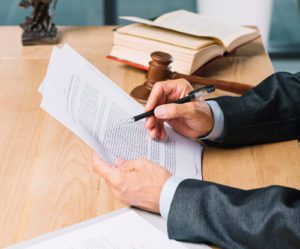 On November 6, 2019, a three-judge appellate panel decided the Somerset County case of State v. Michael Clarity. The principle issue under N.J.S.A. 2C:44-3 was the propriety of sentencing the defendant to an extended term based on his conceding eligibility due to out-of-state convictions.
On November 6, 2019, a three-judge appellate panel decided the Somerset County case of State v. Michael Clarity. The principle issue under N.J.S.A. 2C:44-3 was the propriety of sentencing the defendant to an extended term based on his conceding eligibility due to out-of-state convictions.
Judge Clarkson Fisher wrote in relevant part: In his first point, defendant argues the State failed to show he was a persistent offender. He claims the materials offered by the State to show he was last released from confinement following his service of a thirty-month prison term in Florida in 2009 are insufficient because those materials were inadmissible under the rules of evidence and not “Shepard-approved,” citing Kirkland v. United States, 687 F.3d 878, 886 (7th Cir. 2012). We need not so closely peruse these materials to determine their admissibility or whether they would pass the constitutional test imposed by Shepard because defendant conceded the facts necessary to prove the State’s claim that he is a persistent offender. In reaching this conclusion, we need only briefly identify the types of issues that might have posed impediments to the State’s pursuit of an extended term in these circumstances.
What the State must prove and the level of proof required in such circumstances are engirdled not only by legislative guidelines but by constitutional limits as well. As for the former, we note that the Legislature has not expressly described the degree to which the State must prove the facts necessary for a finding that a defendant is a persistent offender. Elements of an offense must be proved beyond a reasonable doubt, N.J.S.A. 2C:1-13(a), but “when the application of the code depends upon the finding of a fact which is not an element of an offense, unless the code otherwise provides,” N.J.S.A. 2C:1-13(d), “[t]he fact must be proved to the satisfaction of the court or jury, as the case may be”(emphasis added).
When the Court notes that the defendant is claiming x, y, and z, it really means that his appellate attorney is making those claims. It is not as though the defendant is contradicting his own words before the trial court.
